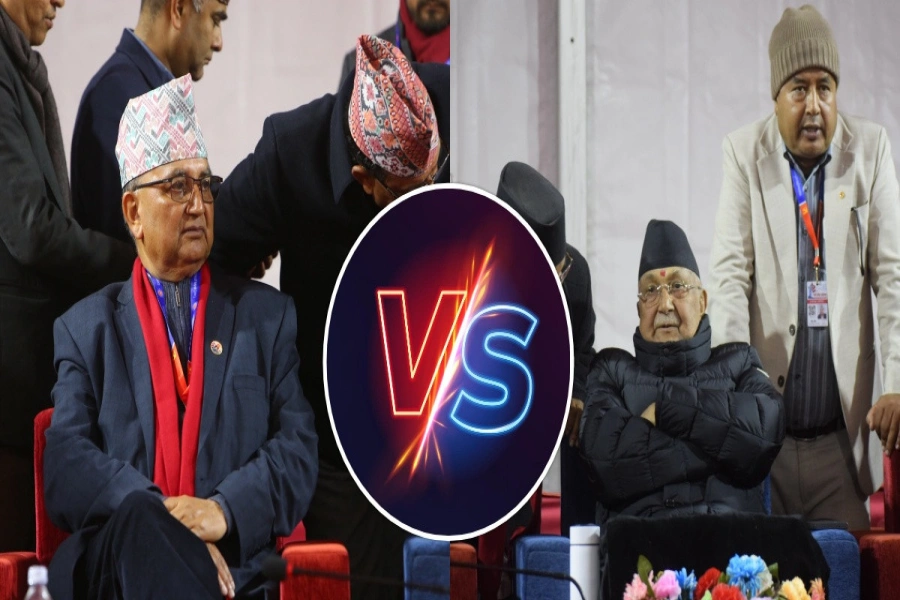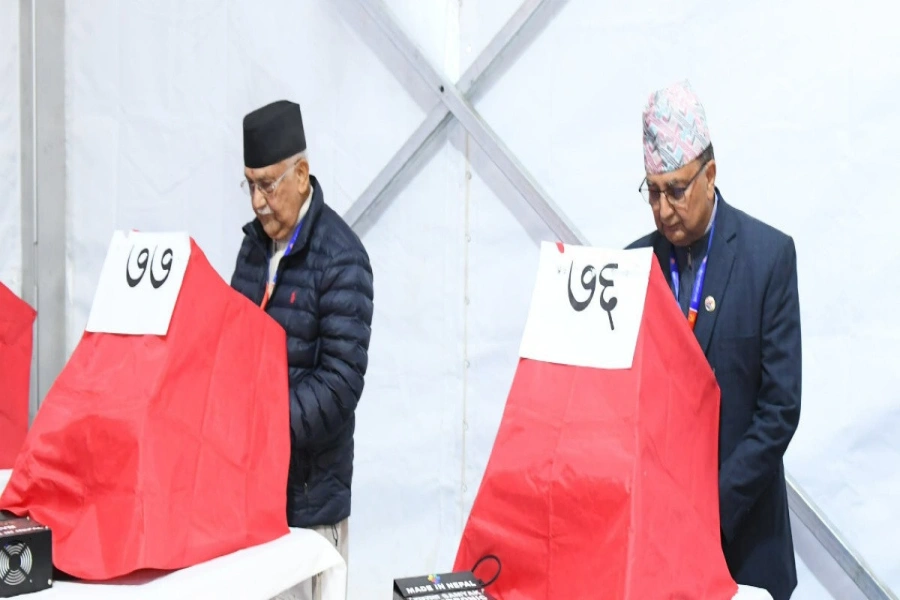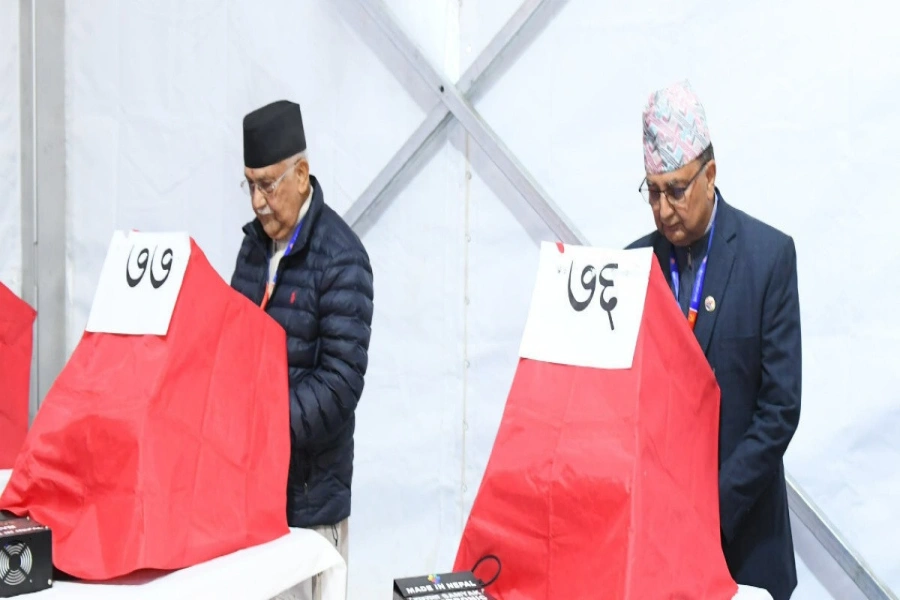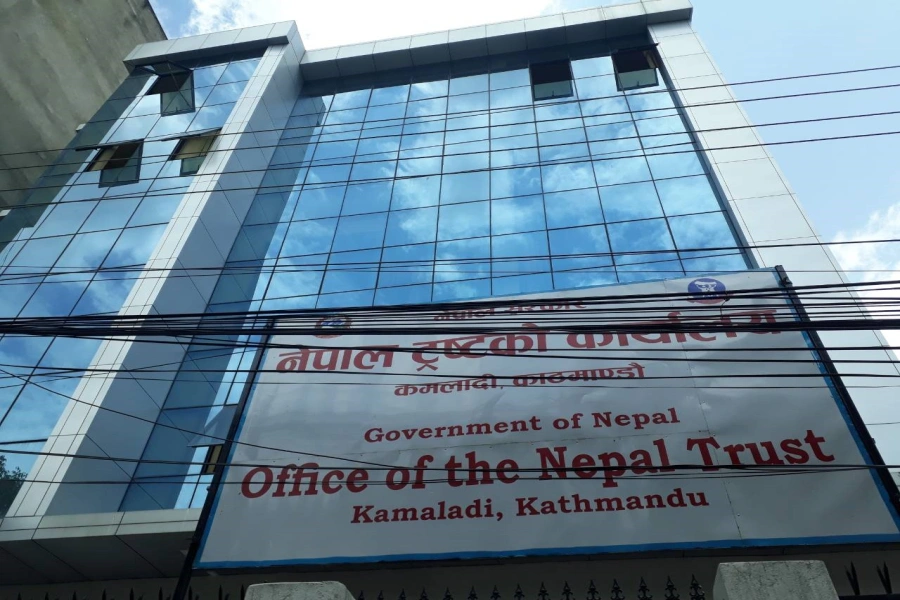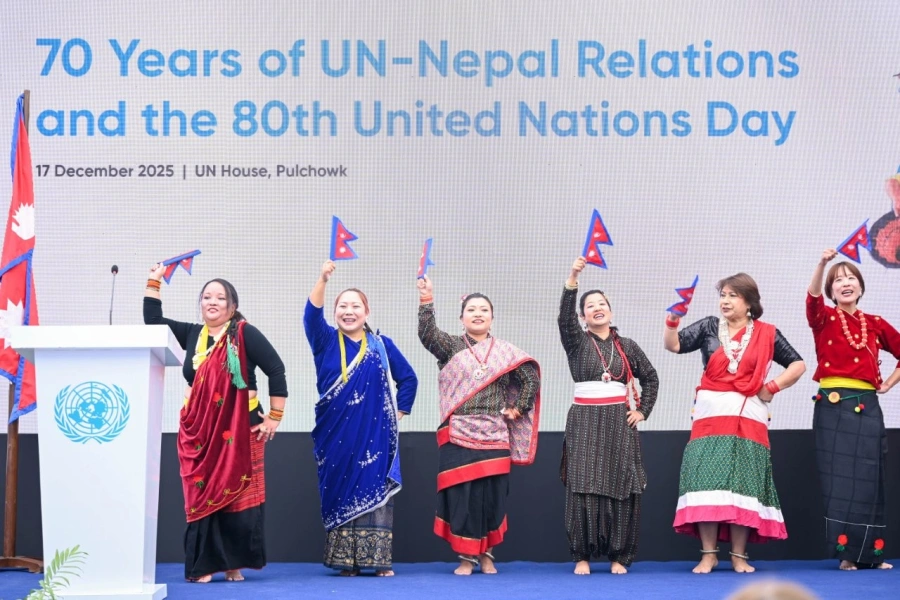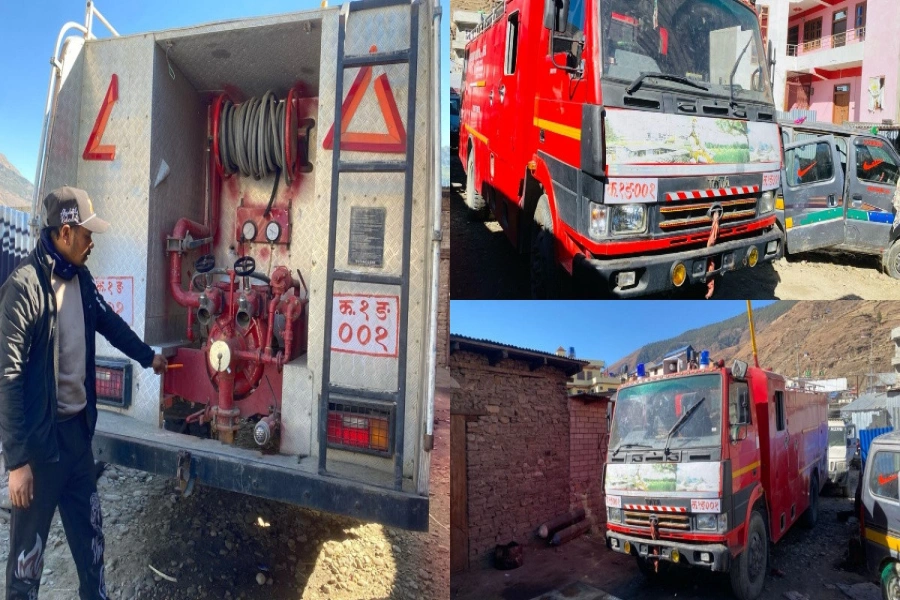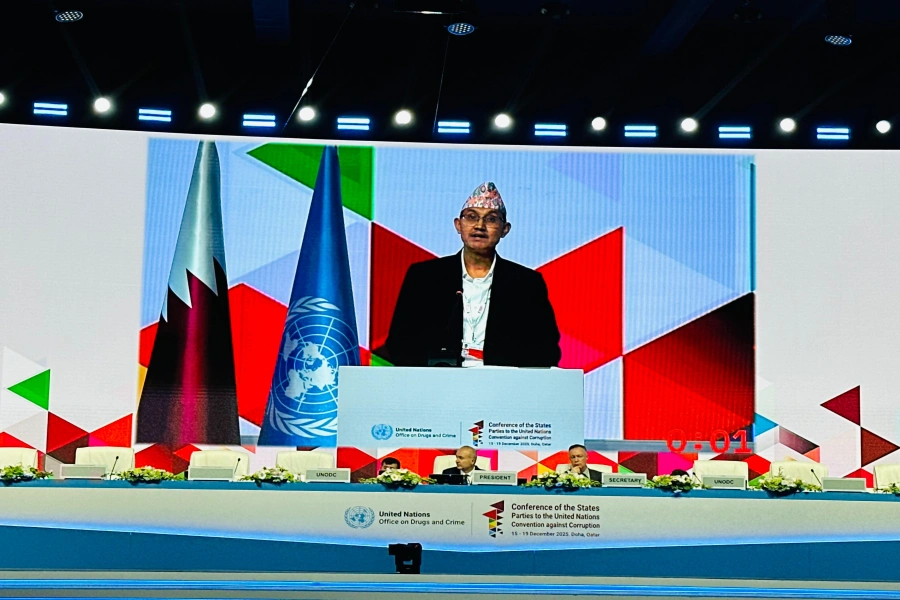KATHMANDU, Aug 29: Deputy Prime Minister and Minister for Home Affairs Bimalendra Nidhi informed Parliament on Sunday that Prime Minister Pushpa Kamal Dahal has proposed to the Indian government to work on exchange of top-level political visits between the two countries.
Nidhi, who has just visited India as the prime minister's special envoy, furnished details at the House meeting after opposition lawmakers demanded that the government inform the people about the letter sent through him by Prime Minister Pushpa Kamal Dahal to his Indian counterpart Narendra Modi.
The deputy prime minister had to answer the lawmakers as the opposition CPN-UML took strong exception to his Delhi visit, saying,"The prime minister and the government made some commitments to the Indian side on changes to the new Constitution”.
“In the letter, the prime minister has sought full support from the Indian side on exchanging high-level visits so as to take bilateral relations between the two countries to a new high,” Nidhi said at the meeting.
Nidhi informed that he also handed a letter from President Bidyadevi Bhandari to Indian President Pranab Mukherjee.
“I informed the Indian side that the priority of the new government in Nepal is constitution implementation in consensus with all major political players,” he explained.
He, however, didn't divulge any further details.
Lawmakers raised the issue as Prime Minister Dahal in his letter reportedly admitted past mistakes and made some promises on constitutional amendments.
Observing that it has already been two decades since an Indian president visited Nepal, he said the upcoming high-level visits would be milestones in elevating the age-old bilateral relations between the two neighbors.
During his five-day India visit, Nidhi met the Indian president, prime minister, ministers and other top officials in Delhi.
Earlier, while addressing Parliament, CPN-UML Vice-chairman Bhim Rawal demanded that the government make clear to Parliament why it had become so urgent for the prime minister to send a special envoy to India.
“There are reports that the prime minister has made commitments to India on constitutional amendment; the government must make clear what the promises are,” said Rawal.
The UML, at its standing committee meeting, expressed serious objection to the government decision, saying it was a move to invite external intervention in the country's internal affairs.
Sara Hanks speaks about Sagoon's Reg A+ offering



